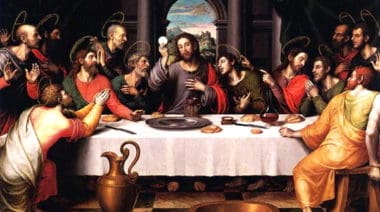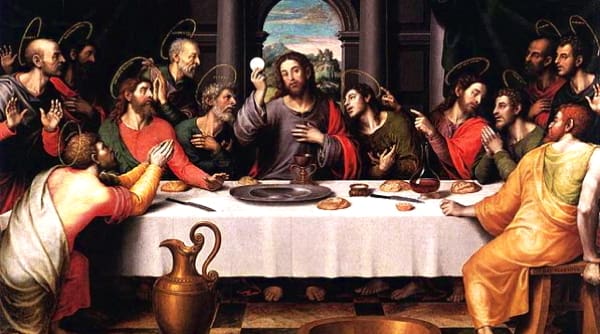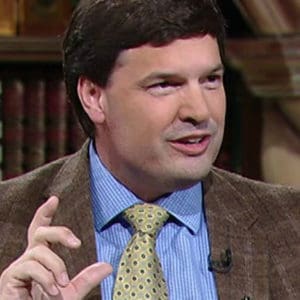Peacemaking
A troubled reader writes…
 “Although I am a convert to Catholicism, I am sad and offended that the Catholics would forget what Jesus would do with regards to breaking bread with any of his children. I too am a Eucharistic Minister and I would never turn anyone down from breaking bread with their fellow man nor make them feel less of a child of God. I was a Lutheran and to say that our wine and bread does not have the same meaning as a Catholic makes me sad. I do so much for the Church because I try to follow in Jesus’s footsteps as best that I can. Separating religions when we all believe in the same God is what will continue our wars amongst the children of God. Jesus did not invent Christianity that separates one another.”
“Although I am a convert to Catholicism, I am sad and offended that the Catholics would forget what Jesus would do with regards to breaking bread with any of his children. I too am a Eucharistic Minister and I would never turn anyone down from breaking bread with their fellow man nor make them feel less of a child of God. I was a Lutheran and to say that our wine and bread does not have the same meaning as a Catholic makes me sad. I do so much for the Church because I try to follow in Jesus’s footsteps as best that I can. Separating religions when we all believe in the same God is what will continue our wars amongst the children of God. Jesus did not invent Christianity that separates one another.”
In Part I, we considered our desire for unity and the first place from which that desire comes from: The Prayer of Christ. In Part II, we looked at the other two places from which that desire comes from: The Prayer of the Church and The Work of the Holy Spirit. In Part III, we will examine the true source of our disunity and see what we need to do once we clearly understand where this division comes from.
2) The true source of the divisions we suffer: As we see where our desire for holy solidarity comes from, we have found the ground we need to better understand why there is so much division among us. Saint Hildegard of Bingen provides a horrific description of what divides us in her Scivias: “And Behold! A pit of great breadth and depth appeared, with a mouth like the mouth of a well, emitting fiery smoke with great stench, from which a loathsome cloud spreads out.” (Scivias, Book I, 2) as in Hildegard of Bingen: Scivias, trans. Mother Columba Hart and Jane Bishop, Classics of Western Spirituality, (New York: Paulist Press, 1990).
The Cloud of Deception: Saint Hildegard explains that this loathsome cloud is nothing other than the fraud of Satan and it was only when humanity fell under this cloud that divisions were fomented among us – starting with the most intimate bond of all: marriage. As long as we are under the cloud of deception, our integrity is at risk and without integrity, we are robbed of the ground we need to freely stand together in unity. What is particularly dangerous about this source of division is that Adam and Eve did not know they had been deceived until God revealed it to them. In the same way, we can be lost in self-deception until the Holy Spirit convinces us of our sin.
The Mystery of Sin: The true cause of our enmity with one another is sin and the consequences of sin. The wisdom of the Church orders our sacramental practices so that we deal with the reality of sin in our lives rather than pretend that it is not there. When my heart aches over divisions in the Body of Christ, the real problem is not the Church’s doctrine or practices. Instead, the real problem is my own sinfulness, my own failures to be faithful to the rich blessings lavished on me by the Lord.
So deep is this mystery in me that I cannot deal with it by myself. At the same time, if sin and its consequences are not dealt with, these only hurt those I love the most. It is a lack of love that prevents us from enjoying the communion we so deeply want to share with one another, a love only Christ can give. Only by suffering this truth, by being vulnerable to the Holy Spirit as He convinces us of sin, do we begin to fathom the height and depth of the love of Christ. It is before the mystery of His inexhaustible mercy that we learn to call out with sincerity, “Son of the Living God, have mercy on me a sinner!”
What we can do: It is for the sake of this saving love that He has ordered the whole life and teaching of the Church, and those who want to share it must be willing to take up all kinds of acts of mercy, penance, suffering, sacrifices, hardships, failures and rejection. Any love ignorant of such things is not worthy of our Crucified God or our neighbor. To suffer this knowledge is a great gift – it is to know the truth on which freedom and charity are found.
Christ’s prayer of unity is realized in my own life and in the lives of those entrusted to me only to the degree that I humbly repent of my own wickedness towards my brothers and sisters and beg the Lord for his mercy. If we consider the prayer of Christ for unity and the mission of the Holy Spirit to convince us of our sin, we begin to see that true unity with one another can only come through personal conversion, a turning away from sin and a turning to the mercy of God. Only as we humbly attend to the Holy Spirit and allow Him to convict us concerning sin are we able to enter into the fulfillment of Christ’s prayer in our own lives. It is by personal conversion alone that the dream of the Bridegroom is to be realized and, at the same time, the more I submit my life to Christ and offer myself as an offering of love for His sake, the more His prayer becomes my own.
Becoming a Peacemaker: Every Mass and every time we go to communion, even when we can only receive the Lord in spiritual communion rather than in the sacrament, we are entering more deeply into this humble but bold prayer. Even when sin and its consequences prevent those who have learned this mysterious cry of the heart from receiving holy communion together, the unity they have in Christ is something that nothing in this world can take away. This holy communion of suffering and love for one another in Christ bears all things and overcomes all divisions – because there is nothing more powerful than His prayer and His saving power at work in us. Peacemakers are blessed in the Body of Christ because their faith sees this mystery unfold even when the sorrow of division feels overwhelming. Such souls know that nothing can separate us from the love of God.
PS from the Editor: If you want to read more of Anthony’s insights on the topic of prayer, don’t miss his new book, Hidden Mountain Secret Garden. Anthony has an unusually profound understanding of mystical theology and lives a life of deep prayer. This book is an experience like no other. Among his many accomplishments and responsibilities, Dr. Lilles now teaches theology for the Avila Institute.
+
Art for this post on the beatitude of peacemaking in the Body of Christ: The Last Supper, Joan [or Juan] de Juanes, 3rd quarter of 16th century, PD-worldwide, Wikimedia Commons.




